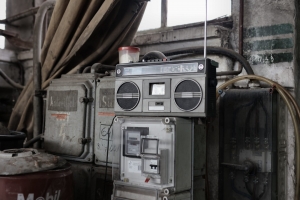Broadcasting Tolerance: Using Radio to Promote Inclusion of Marginalized Groups in Uganda
The number of people affected by displacement events has increased dramatically in recent years, more than doubling from 38 million in 2000 to over 84 million in 2021. The arrival of large numbers of refugees can place a significant burden on host communities (e.g., in the form of competition for jobs and resources, and congestion of public services), which can lead to backlash by local populations. In this context, it is important to identify evidence-based approaches to promote tolerance and inclusion.
This project will pilot the production of a novel radio program in Uganda, with the goal of reducing prejudice towards refugees. This program will take the form of a serialized radio drama—a “soap opera” prominently featuring characters who are refugees. Throughout the program, these characters’ own personal histories, and their interactions with local Ugandans, will emerge as organic parts of the storyline. We will draw on several social psychological approaches in developing this program, including perspective-taking, family histories, and personal narratives. Recent evidence suggests that short vignettes and one-on-one conversations using perspective-taking can reduce prejudice.
As a second treatment, we will also develop an informational talk radio show, which will feature factual information on refugees in Uganda. By providing information on topics that may be of concern to Ugandans, such as the number of refugees in Uganda and their skill level, impacts of refugees on local economies, and refugee use of public goods and basic services, this program will aim to dispel common misconceptions about refugees.
At the pilot stage, we will develop pilot episodes of each radio program, and test them on a small sample of Ugandans for comprehension and short-term effects. In a planned full study following our proposed small-scale pilot, we will employ a regression discontinuity design combined with a randomized experiment to measure the effect of airing the radio programs.


